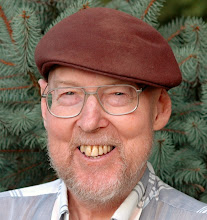I've helped other organizations raise millions but today when I e-mail the board to tell them we need to raise $15,000 to create a website that can host a complete set of plans for annual and capital campaigns for other nonprofits, and serve as part of a platform for a book on nonprofit leadership, I feel like a beginner.
Reading Michele Martin's How to be a beginner was exactly what I needed as I wrap up my day this evening. Here are two good quotes:
- Part of learning and growing, I think, is getting comfortable with being a beginner.
- Be willing to fail publicly. This is the hardest one for me. I prefer to fail quietly, behind the scenes, not in front of an audience. But you don't get feedback when you always fail alone, so sometimes you have to be willing to take a risk where people can see you.
Check out Michele's "The Bamboo Project Blog."

